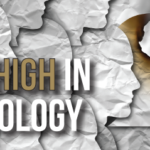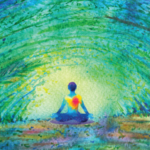Evidence is mounting on the effectiveness of meditation to reduce or counter the effects of burnout.3,4,5 Data from a 2009 study show that primary care physicians who participated in a continuing medical education (CME) course that included mindfulness meditation had both short- and long-term improvements in well-being and attitudes, such as empathy associated with patient-centered care.5 More recent data show that participation in an abbreviated training course on mindfulness intervention (eight weeks) for primary care physicians led to reductions in depression, anxiety, stress and indicators of job burnout.3 A follow-up study showed feasibility and success in cultivating mindful awareness training in the healthcare system.4
Currently, a number of CME programs that train physicians in meditation are now being offered around the U.S., as well as online (see Table 1).
Dr. Kaushik, who employs many yoga self-care practices at the Stratton VA Medical Center in Albany, says that meditation, gentle yoga and diaphragmatic breathing used to prevent and relieve burnout are available to meet the needs of physicians and, in particular, are available to work within the constraints on physicians’ time.
For six years, Albany Medical College, in joint providership with the American Meditation Institute (AMI), has presented comprehensive training in yoga science as holistic mind/body medicine to relieve physician burnout. Now in its seventh year, this year’s conference will be held Nov. 3–7, 2015, at the Cranwell Resort in Lenox, Mass.

Dr. Kaushik
Dr. Kaushik, who will be lecturing on the use of simple yogic techniques, such as mantra meditation and diaphragmatic breathing to relieve burnout, says the course will provide practical instruction for physicians and other healthcare professionals on meditation skills by providing them an entire toolbox of techniques they can use in their personal and professional lives.
Along with the annual November conference, the same curriculum is available throughout the year in different formats, including a six-week program at the AMI near Albany and a summer weekend retreat every July.
Joel Kremer, MD, Pfaff Family Professor of Medicine at Albany Medical College and director of research, The Center for Rheumatology, Albany, N.Y., who has attended the annual CME meeting at AMI, emphasized the importance for physicians to have an open mind to alternative methods to relieving stress while recognizing the challenge of finding time to do it. “There is a Catch-22,” he says. “We [physicians] are too busy to consider and be educated about alternative methods for relieving stress.”




